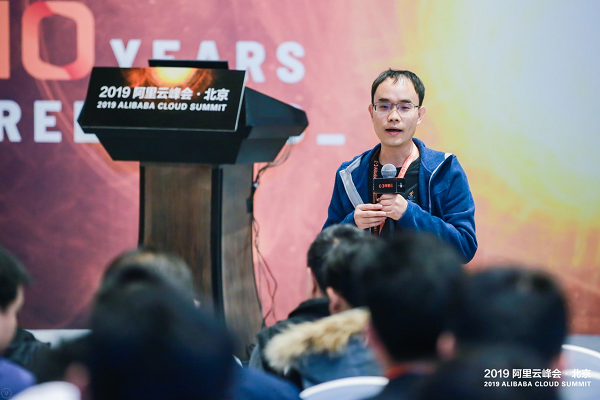On March 21, at the Alibaba Cloud Summit in Beijing, Alibaba officially announced that the long-term support version of OpenJDK, Alibaba Dragonwell, is now open-source. As the only Chinese representative of the executive committee of Java Community Process (JCP), a global Java management organization, and one of the few OpenJDK customizers in the Java ecosystem outside of Oracle, Alibaba's announcement of making Alibaba Dragonwell open-source is a great contribution for Java developers around the world.

Alibaba Dragonwell is a free distribution version of OpenJDK. It provides long-term support, including performance enhancements and security fixes. Alibaba Dragonwell currently supports X86-64/Linux platform. It can greatly improve stability, efficiency and performance under the condition of large-scale Java application deployments in the data center. Alibaba Dragonwell is compatible with the Java SE Standard. Users can use Alibaba Dragonwell to develop and run Java applications.
This version of the Alibaba Dragonwell 8 Preview released by Alibaba corresponds to OpenJDK 8. Alibaba Dragonwell moving to open-source provides a new choice for Java developers around the world. At the same time, for Alibaba Cloud, Alibaba Dragonwell is released along with the Alibaba Cloud VM image for the two versions of LTS, Java 8 and Java 11, for free use by Alibaba Cloud customers.
The predecessor of Alibaba Dragonwell is AJDK (Alibaba/AlipayJDK), which is used internally by Alibaba. As early as 2010, Alibaba began the development of open source software based on OpenJDK, and started the optimization and customization of OpenJDK 8 in 2015.
AJDK, as the basis of Alibaba Java applications, has provided support for all Java services in the Alibaba economy, withstood many "Singles' Day" annual shopping carnivals, and accumulated a wealth of practical experience under various business scenarios. As an OpenJDK customizer in the Java ecosystem outside of Oracle, Alibaba has spared no effort to continue to develop the new Java field:
As an open source version of AJDK, Alibaba Dragonwell has inherited the technical advantages of AJDK and technical experience in practical scenarios. After Alibaba Dragonwell is made open-source, each release will synchronize the latest update of OpenJDK 8 (OpenJDK 8u), and add the Alibaba "value-add" function based on Alibaba's engineering practices. Alibaba Dragonwell is tested using the JCK compatibility suite to ensure Java compatibility.
Oracle announced that Java8 would no longer be maintained after January 2019, and that free long-term support (LTS) would no longer be available in Java 11 and later. It is foreseeable that more and more Java developers will turn to OpenJDK in the future. Alibaba has long been committed to working closely with the OpenJDK community, a gathering place for Java technology advancement. Alibaba Dragonwell will keep pace with the community version, and fully integrate Alibaba business practices and technical experience to provide a good solution for Java developers.
For more information, read the Alibaba Dragonwell 8 User Guide here: https://github.com/alibaba/dragonwell8/wiki/Alibaba-Dragonwell8-User-Guide
As the downstream of OpenJDK, a new version of Alibaba Dragonwell will be released every quarter, which mainly includes:
We plan to gradually make the technical innovations (accumulated by Alibaba using AJDK) open-source to continue contributing to the community.
And, we expect to release Alibaba Dragonewell 11 by the end of 2019.
Join the official Alibaba Dragonwell community by visiting: https://github.com/alibaba/dragonwell8
CRI and ShimV2: A New Idea for Kubernetes Integrating Container Runtime

507 posts | 48 followers
FollowAlibaba Clouder - October 21, 2020
Alibaba Cloud Community - April 22, 2024
Alibaba Cloud Native Community - March 25, 2019
Alibaba Developer - August 8, 2019
OpenAnolis - April 22, 2022
Aliware - April 10, 2020

507 posts | 48 followers
Follow Alibaba Cloud Community Influencer
Alibaba Cloud Community Influencer
Share your knowledge and experiences on Alibaba Cloud, build your influence, and get rewarded.
Learn More Managed Service for Prometheus
Managed Service for Prometheus
Multi-source metrics are aggregated to monitor the status of your business and services in real time.
Learn MoreMore Posts by Alibaba Cloud Native Community